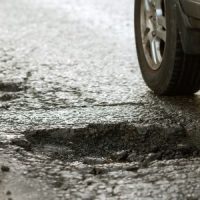Texas Roads Deteriorating; How This Affects Drivers

There are so many open roads in the United States. Millions of motorists drive these 4.2 million miles of roads every day. However, many of these roads need repairs. In fact, there is a huge backlog of $786 billion in needed repairs.
Poor road conditions affect drivers significantly. American motorists spend $130 billion on extra vehicle repairs and fuel costs as a result of the effects of driving on poor-quality roads.
In 2000, 82.6% of U.S. roads were considered acceptable to drive on. By 2020, this number had reduced to 81%. Acceptability is based on federal standards, which look at how rough or smooth a road surface is,
Texas roads in particular have changed over the past two decades. Roads in the Lone Star State have gotten worse over time. In 2000, just under 83% of roads were in acceptable condition. In 2020, this number dropped to 77.6%.
Roads in poor conditions have resulted in unsafe driving and accidents. This has led the Texas legislature to make some changes to laws. House Bill 1885 was passed in June, allowing local authorities to temporarily change the speed limit on roads in situations such as bad weather, construction, or poor roads.
Road condition is determined by the International Roughness Index, which measures deviations from pavement surfaces. Roads with values below 170 are considered acceptable, while anything above 170 is in poor shape. Nationwide, over the past 20 years, some states have improved their road infrastructure, while some states have seen a massive decrease in road quality.
States in this situation include Rhode Island and Washington. These two states have seen more than 20% of their roads degrade into poor condition. Conversely, states such as Arkansas and Oklahoma have seen significant improvements in the quality of their roadways. They are continuing to invest more into their roadways by implementing state-initiated projects and increased taxes. Some states, like California, depend on high gas taxes to fund road repair and construction.
Dangers of Poor Road Conditions
Poor road conditions can significantly jeopardize safety and hinder transportation efficiency. Here are the key dangers:
- Accidents and injuries. Potholes, uneven surfaces, and loose gravel can cause loss of control, leading to collisions or rollovers. Water accumulation in cracks or depressions can cause hydroplaning. Sudden swerving to avoid potholes can result in collisions or loss of control.
- Vehicle damage. Uneven roads strain tires and suspension systems, leading to frequent repairs. Driving on rough roads can cause misalignment, making handling more difficult. Large potholes or debris can damage the undercarriage, including the exhaust system and oil pan.
- Traffic delays. Poor road conditions slow down vehicles, reducing traffic flow efficiency. Increased congestion leads to longer travel times and frustration.
Contact a Personal Injury Lawyer
Road conditions can make driving difficult. Potholes and other road issues can lead to accidents, tire blowouts, and more.
When a government agency does not make repairs in a timely manner, they can be held liable for damages. Protect yourself legally and financially with help from a Houston auto accident attorney from The West Law Office, PLLC. Schedule a consultation by calling (281) 347-3247 or filling out the online form.
Source:
kvia.com/news/texas/stacker-texas/2024/02/09/how-road-conditions-in-texas-have-deteriorated-since-2000/
